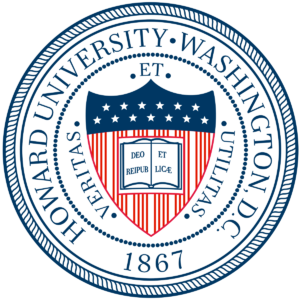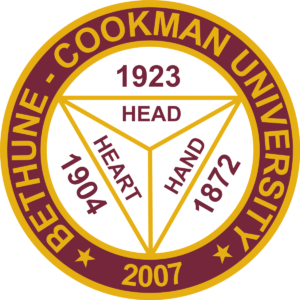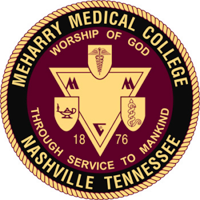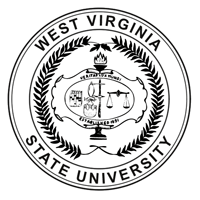Capital Financing Program Case Studies
The following case studies describe representative HBCU Capital Financing Program loans completed by Rice Capital Access Program.

The following case studies describe representative HBCU Capital Financing Program loans completed by Rice Capital Access Program.
See a complete list of HBCU loan recipients.

Howard University (DC)
$226,500,000 New Money Loan
January 25, 2023
For the first time since the Program’s inception, Howard University was able to utilize the HBCU Capital Financing Program in 2023 to fund a significant portion of an ambitious academic building initiative. Previously unable to qualify for participation in the Program, an Act of Congress in 2022 helped clear the way for the University. This transaction represents the largest financing completed to date through the Program.
The University sought funding to construct a new lab-intensive science, technology, engineering, and mathematics (STEM) building. The STEM Center is a significant component of the District of Columbia-approved 2020 Central Master Plan and core to the Health Sciences Corridor. As such, it will rise adjacent to the proposed Health Sciences Center. The STEM facility will also encompass the C.B. Powell (Freedmen’s Hospital) building. The proposed seven-story building co-locates science, technology, engineering, and mathematics programs to foster interdisciplinary collaboration, innovation, and discovery. This program enables STEM programs that are currently spread across various parts of the campus to be consolidated into one contiguous, state-of-the-art location, providing one-stop access to teaching and research labs, office and administrative functions, classrooms, meeting spaces, and other academic and campus support resources. The University anticipates project completion and occupancy at the start of fall 2026 academic semester.
Howard University’s Series A 2023-3 HBCU Loan closed on January 25, 2023, with a not-to-exceed amount (loan par amount) of $226,500,000. The loan was structured as follows:
A replacement reserve requirement is initially $1,100,000 commencing July 1, 2023, with a 3% annual increase through July 1, 2025. On July 1, 2026, the requirement increases to $3,500,000 with 3% each fiscal year through the term of loan. An annual report is required to indicate that this requirement was met. If not, the account must be funded.
 Morgan State University (MD)
Morgan State University (MD)
$65,000,000 New Money Loan
December 1, 2022
To augment state and bond funding for a variety of projects campus-wide, Morgan State University turned once again to the HBCU Capital Financing Program. The $65 million new money transaction, which closed in December 2022, represents the University’s third loan through the Program since 2018. Proceeds from the loan helped finance renovations at residential halls and academic buildings and address deferred maintenance at several locations.
History of Creative Financing. The University has been a leader in using innovative partnerships and financing mechanisms to support its academic programs and student life facilities, including being among the first wave of institutions to use a P3 approach to the financing of student housing with the original financing of Morgan View in 2002.
Despite these efforts, however, the University’s existing housing capacity cannot meet current demand, as fall 2021 enrollment boasted the largest freshman class in school history. Even with 670 new beds recently added, the University still needs to lease approximately 1,324 beds from third-party, off-campus apartments to accommodate excess demand for on-campus housing. The University also needs to replace or renovate some of its existing halls, which will create further pressure on housing supply.
To address its current housing needs, the University developed a Student Housing Master Plan, creating a long-term strategy to improve the amount and quality of its on-campus student housing inventory. As recommended by the Plan, the University plans to expand its on-campus housing capacity with the TM3 Project, further described below, which will be comprised of a tower style residence hall with a mix of semi-suites, full suites with kitchenettes and apartments.
In addition to the HBCU Capital Financing Program borrowing, another funding source for this ambitious project is the State of Maryland, which recently increased its capital budget, allocating funds to the University for a number of projects covering pipe repair, central plant improvements, security upgrades, elevators, and roofs. A third funding source is a $110 million bond issue that was completed by the University in October 2022 through the Maryland Economic Development Corporation.
Exceptional Credit Ratings. Despite the economic volatility and uncertainty spurred by the pandemic, the University continues to amass strong financial assessments by the leading rating agencies. Following an intensive examination of the University’s fiscal operations, financial position and financial trends, the University solidified an investment-grade credit rating of A1 with a Stable Outlook from Moody’s Investors Service in 2022. In the Standard & Poor’s credit opinion, released in the first quarter of 2022, the University received a long-term underlying A+ rating for the fifth consecutive year. These credit ratings make Morgan State University one of the highest-rated HBCUs on both the Moody’s and S&P lists.
“As an institution rooted in integrity, Morgan takes very seriously its responsibility to be extraordinary stewards of the resources under its fiduciary care,” said David K. Wilson, president of the University. “Despite the challenging year we’ve experienced due to a global pandemic, the fastidiousness of the management team that we have in place and the support received from our governing board allowed the University to remain in a positive position, achieving targeted goals. The very strong bond ratings from S&P and Moody’s—two of the most respected leaders in this space—are affirmations that Morgan is not only on sound footing fiscally but is also in the best financial position in more than 30 years.”
TM3 Project: Thurgood Marshall Hall. The University’s TM3 Project includes approximately 605 beds of semi-suite, full suite and apartment style housing, reducing MSU’s need to lease other off-campus beds to accommodate students. All units are fully furnished and have high-speed Wi-Fi throughout the community. Each student has his or her own twin-size bed, desk, desk chair, and dresser. The full suite units feature kitchenettes with an appliance package that includes a refrigerator, microwave and sink. Apartment units feature full kitchens with an appliance package that includes a refrigerator, oven, microwave and sink. Full suite and apartment unit living room areas feature modern, durable furnishings, including living room seating, entertainment center and dining table with seating. Construction is expected to be completed before the beginning of the Fall 2024 semester.

Bethune-Cookman University (FL)
$108,000,000 New Money and Restructuring Loan
June 29, 2021
This transaction was broken up into three series:
The University had entered into a 30-year $85 million capital lease under a public/private arrangement and was structured in such a way that only a small part of the principal was being paid down every year. This resulted in the University paying a large interest payment with the aggregate interest amount over 30 years totaling almost the aggregate principal of $85 million. Rice worked with the University, developer, financial advisor and Department of Education to get them out of this difficult debt arrangement, which can be accurately described as predatory. With this transaction, this off-balance-sheet capital lease was then brought on balance sheet. The University saved almost $58 million in debt service (approximately $1.7 million of annual savings) for the term of loan, equivalent to $46 million of net PV savings, resulting in dramatically improved cashflow.

Meharry Medical College (TN)
$39,750,000 New Money Loan
March 6, 2022
On March 21, 2020, Meharry Medical College (MMC) submitted an application to the HBCU Capital Financing Program seeking funding for, among other things, the construction of a 126-unit apartment complex and parking facility (Living and Learning Center). This borrowing was completed in August 2020. In November 2021, RCAP began discussing with MMC the need to increase the original financing amount for the Living and Learning Center by approximately $11.38 million. The cost of construction across the country has significantly escalated, and the Nashville market commands a premium due to robust new development and overwhelming demand for both residential and commercial space. As such, the cost of housing in Metro Nashville has increased, which is driving an increase in students who desire to live closer to the campus and the hospital. This new 2022 loan was structured to match the delay and increase of cost in the construction of the Living Learning Center. The transaction increase closed in March 2022.

West Virginia State University
$40,500,000 Refinancing
May 5, 2021
The purpose of this May 2021 refinancing was to provide West Virginia State University overall cash flow relief by refunding three outstanding bond transactions and purchasing the Judge Damon J. Keith Scholars Hall from the WVSU Foundation. In total, the refunding generated net PV savings of almost $11.3 million (34% of refunded bonds). This refinancing will ultimately save the University over $14.1 million in gross savings over the next 25 years, which will help increase its liquidity position and cash days-on-hand. Lowering the annual debt service will help with debt burden operations. With the annual savings resulting from this refinancing, management can look to redirect resources to tackle the retention issue by seeking additional advisors to better support at-risk students.